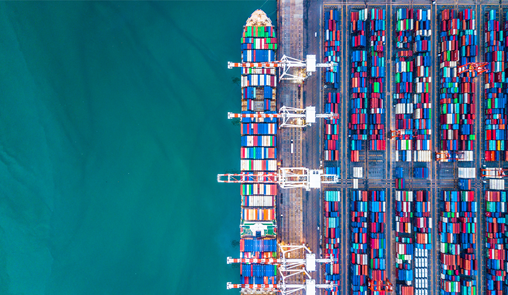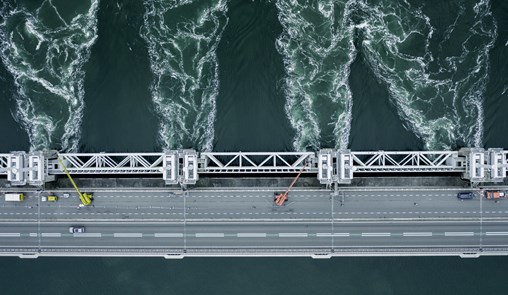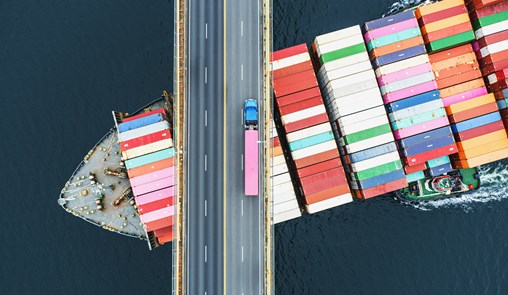Australia is set to introduce new fuel efficiency standards. From 2025 suppliers of vehicles in Australia (such as importers) will have an average yearly Co2 target (cap) for the collective fleet of new vehicles they supply in Australia, with tradable credits and penalties for every gram of Co2 over the target.
The new standards will apply to traditional fuel vehicles, hybrids, and electric vehicles (EVs) alike, but will impact both them and their suppliers differently.
A recent WTO panel report demonstrates that “climate change” cannot be a blanket cover for trade restricting measures. The designers of Australia’s fuel efficiency standards should take heed.
Are these new standards a rebate or subsidy for EVs?
The New Vehicle Efficiency Standard is part of the Australian Government’s National Electric Vehicle Strategy. The strategy is intended to favour the uptake of electric vehicles in a manner that will override and improve upon the state-specific cash rebates that recently popped-up in many Australian jurisdictions. NVES will skew the conditions of competition in favour of no and lower carbon emission vehicles over traditional fossil fuel powered cars and trucks. This will be achieved by providing credits to suppliers of vehicles that meet or beat an average carbon-emission target and by debiting them for vehicles which fall short. Suppliers who find themselves in debit can purchase credits from complying suppliers or pay a penalty for each gram of Co2 above the target cap. Target caps will be lowered each year, with suppliers needing to reduce new vehicle emissions by over 60% by 2030.
So, no cash handouts to be seen here? Maybe, but NVES will certainly be viewed as operating as an incentive for EVs in substitution for the retiring rebate schemes. It can be seen as a tax on Co2-heavy vehicles, not imposed or less imposed on other vehicles. Further, and literally, NVES involves the government in directing suppliers of higher emission vehicles to transfer funds to suppliers of lower emission vehicles. Each of these characterisations of NVES approximate WTO subsidy definitions.
NVES will also operate as a “behind the border” restriction or internal regulation that affects how products are sold on the market. Importantly for WTO law purposes, it must not disproportionately disadvantage our trade partners, or some of our trade partners over others, without some legal justification for doing so.
“More trade restrictive than necessary” versus “legitimate objectives”
Regulations such as these are classed as “technical barriers to trade”. They must comply with World Trade Organization rules, and if not may be overturned through WTO challenge.
Under WTO law, technical regulations cannot have the effect of creating “unnecessary” obstacles to international trade and must “not be more trade restrictive than necessary to fulfil a legitimate objective”. Even if geared to achieve a legitimate objective, a technical regulation cannot result in arbitrary or unjustifiable discrimination against or amongst other WTO members.
Electric vehicles and hybrids from countries where manufacturers are already coping with stringent standards will be advantaged under Australia’s new scheme. Those manufacturers will likely have adapted their product mix and have in place the certifications that prove their vehicles’ emissions performance. They will have fleet options that will allow them to capture credits as soon as the Australian standards come into effect.
Others may have moved in the direction of lower emissions and greater efficiency, consistent with undistorted consumer preferences and cognisant of infrastructure limitations in the markets they service. Even so, they will be very likely to incur fossil fuel debits, depending on the technical criteria Australia adopts and the evidence they may present to satisfy those criteria, and the practicalities of the transport markets they already service.
Countries that produce, assemble or ship “traditional” vehicles especially those with larger Co2 footprints, and have done so legitimately and without penalty in their own countries, are carefully assessing the impact that NVES will have on their exports to Australia. Thailand, for example, is a major exporter of work trucks and sports utility vehicles, product categories that are very popular in Australia and which will be most affected by the new scheme. The Thai Prime Minster has called on Australia to slow the NVES rollout.
WTO panel says global warming not a blanket excuse
In EU – Palm Oil,[1] a WTO panel report on EU oil crop-based biofuel measures handed down just this week, the panel broadly stated that “global warming and climate change pose one of the greatest threats to life and health on the planet”. Nonetheless, the EU was found to have administered certain aspects of its renewable energy program in a WTO-inconsistent manner, despite claiming that it was justified in doing so.
The EU’s measures were geared towards reducing the cultivation of biofuel crops that displace natural carbon sinks like forests and wetlands and thereby contribute to climate change. Palm oil-based biofuels (cultivated primarily outside the EU) were subject to a cap and phase out, while biofuels from rapeseed, soyabeans and sunflower cultivated within the EU were subject to a higher cap with no phase out.
Malaysia argued that the true objective of the measures was trade protection. Despite Malaysia’s arguments that the EU’s methodology was arbitrary, and that the EU used conveniently selected data that resulted in tropical rather than EU-cultivated crops being targeted, the panel majority thought that the measures in question were sufficiently neutral as to not have an actual protectionist objective. One panellist dissented, finding a protectionist element to the measures which meant, from that panellist’s perspective, that the detrimental impact did not stem exclusively from a legitimate regulatory distinction.
Despite finding no actual protectionist objective, the panel did find that the EU was discriminating against palm oil-based fuel from Malaysia inconsistently with WTO law by making it difficult for Malaysian exporters to compete with biofuels from other countries and the EU. For all the panellists the “climate change” justification could not completely excuse aspects of the program’s design that were found to lack fairness. These included the choice of data, and the failure to update it in a timely manner; ambiguity of criteria; and time limits for certification procedures that unjustifiably disadvantaged oil palm as a perennial crop. The panel found that these “deficiencies in the design and implementation” had resulted in arbitrary or unjustifiable discrimination.
In US – Taxes on Automobiles,[2] a 1994 dispute brought by the EU against US fuel efficiency measures, the panel found that a neutral fuel efficiency measure did not discriminate against imported cars. But the new EU – Palm Oil panel report suggests that this may not necessarily be the outcome where measures have a different effect for products from different countries.
Different strokes for different folks?
The WTO EU – Palm Oil panel report suggests that formally neutral treatment may still be unjustifiably discriminatory. This suggests the need for flexibility in the design and application of these kind of “rebalancing” schemes, especially for those who will be affected the most, namely developing countries.
In this regard it is to be noted that the recent WTO Ministerial Conference (MC13) reiterated the need to bolster consideration of “special and differential” treatment for developing and least developed countries. This could lead to even more nuanced findings in energy disputes between the “industrial north” and “agricultural south” that focus on the administration and implementation of mechanisms to address client change. Future WTO panels may need to be more alive to the need to affirmatively discriminate in favour of developing and least developed countries, adding more uncertainty to how fast and how far WTO Members can move the dial on remedying “one of the greatest threats to life and health on the planet”.
Australia’s New Vehicle Efficiency Standard will need to take account of the different effects of the scheme on its trading partners and offer appropriate flexibilities on the road to net zero and beyond.
Our international trade team has been ranked Band 1 for International Trade/WTO by Chambers & Partners for 17 consecutive years. Moulis Legal advises WTO Members and private corporations with respect to their international trade law affairs. We have represented three governments in active Dispute Settlement Body proceedings. The team includes Daniel Moulis, a seven time WTO dispute panellist; Charles Zhan, one of Australia’s best-regarded trade measures exponents; Alistair Bridges, a subsidies, export controls and sanctions specialist, and Jessica Giovanelli, an ex-WTO Secretariat lawyer whose case work includes four years on the well-known Airbus-Boeing dispute.
This memo presents an overview and commentary of the subject matter. It is not provided in the context of a solicitor-client relationship and no duty of care is assumed or accepted. It does not constitute legal advice.
© Moulis Legal 2024
[1] Panel Report, EU and Certain Member States – Palm Oil (Malaysia).
[2] Panel Report (circulated but unadopted), US – Taxes on Automobiles.








